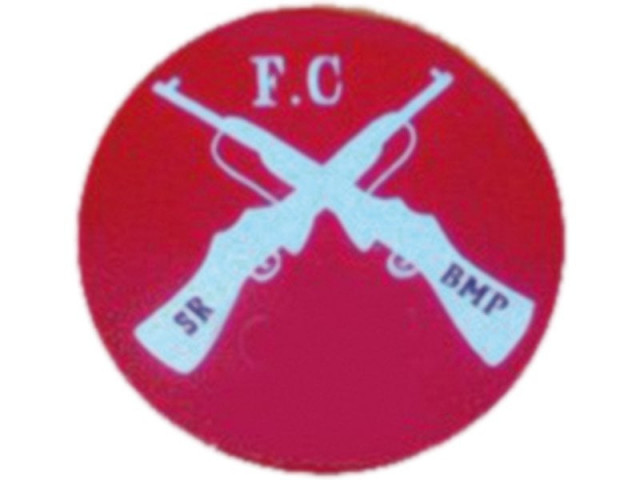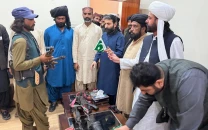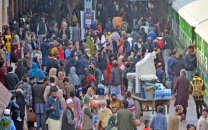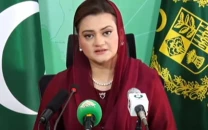Guarding the frontier: A century served in protecting our borders
Under trying circumstances the FC has rendered considerable sacrifices since its inception in 1913.

Under trying circumstances the FC has rendered considerable sacrifices since its inception in 1913.
This year marks 100 years since the creation of the Frontier Constabulary (FC). However, the years have not been kind to the once well-equipped and highly motivated force.
Formed by the then British Indian administration in 1913, by merging together two smaller paramilitary forces – the Samana Rifles and the Border Military Police - the FC was meant to serve as a buffer between the volatile tribal belt and the settled districts in what was then known as the North West Frontier Province.
Its main duty was to regularly patrol the areas which fell under its responsibility and keep a look out for incursions from tribesmen.
Recounting the history of the FC, an official told The Express Tribune the force was established at a time when single-shot Martini-Henry rifles began permeating the markets and the tribesmen began acquiring them, creating trouble for the border police.
“Thus, the FC was armed with a superior 11-shot three knot three rifle. But the weapons were not our only advantage. The force was also provided with well constructed large forts and other quality equipment and supplies,” he said.
The only disadvantage at the time was the salary, which was only 50% of what a regular soldier in the British Army earned, he added.

Under trying circumstances the FC has rendered considerable sacrifices since its inception in 1913. PHOTO COURTESY: WWW.FC.GOV.PK
“Back then, the FC was a disciplined force which functioned exceptionally well, however, nowadays the force has been deployed to far-flung areas without any proper buildings or other facilities,” the official shared.
Pointing out the transformation between the FC’s heyday and current state and highlighting the authorities’ negligence, the official said during the British Raj, personnel were housed in the luxurious Shabqadar Fort, located 40 kilometres north of Peshawar. However, today, FC personnel live in a tent in militancy-hit areas without so much as basic supplies.
“The decline of the FC started back in the 1980s when it was deployed in police stations and shifted to other provinces to carry out other tasks,” he said.
Today, the primary weapons used by the FC are Chinese semi-automatic rifles which are no match for militants equipped with sophisticated weapons, he claimed. Even under such circumstances the FC has rendered considerable sacrifices for the country.
Another FC official deployed along the border of Khyber Agency told The Express Tribune, “At times we even exchange arguments with militants when the frequencies intercept.”

Under trying circumstances the FC has rendered considerable sacrifices since its inception in 1913. PHOTO COURTESY: WWW.FC.GOV.PK
He added the police had a similar problem with their wireless sets, therefore, they were provided with a secure communication system but FC officials continue to use the insecure channels.
“We live in tents and even if we find houses they are mostly taken from residents because the only thing the high command provides us with is water - a tanker every few days,” he explained.
The official, however, insisted the most significant drawback for FC troops were their semi-automatic rifles which were no match for AK-47s and heavy machine guns wielded by militants.
“When a policeman is killed his family is given Rs3 million under the Shahuda Package along with a plot but provisions for families of FC officials who are killed in action are meagre,” he lamented. “Today FC is just a shadow of its former glory.”
Published in The Express Tribune, November 27th, 2013.



















COMMENTS
Comments are moderated and generally will be posted if they are on-topic and not abusive.
For more information, please see our Comments FAQ